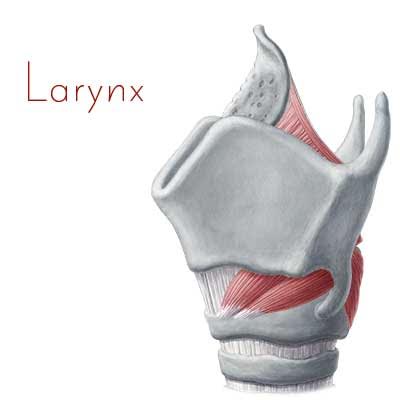- Home
- Editorial
- News
- Practice Guidelines
- Anesthesiology Guidelines
- Cancer Guidelines
- Cardiac Sciences Guidelines
- Critical Care Guidelines
- Dentistry Guidelines
- Dermatology Guidelines
- Diabetes and Endo Guidelines
- Diagnostics Guidelines
- ENT Guidelines
- Featured Practice Guidelines
- Gastroenterology Guidelines
- Geriatrics Guidelines
- Medicine Guidelines
- Nephrology Guidelines
- Neurosciences Guidelines
- Obs and Gynae Guidelines
- Ophthalmology Guidelines
- Orthopaedics Guidelines
- Paediatrics Guidelines
- Psychiatry Guidelines
- Pulmonology Guidelines
- Radiology Guidelines
- Surgery Guidelines
- Urology Guidelines
Persistent sore throat a greater warning of larynx cancer than hoarseness

According to a study by researchers at the University of Exeter, a persistent sore throat combined with shortness of breath, problems swallowing or an earache is a greater warning sign of laryngeal cancer than hoarseness alone. Therefore family Physicians should consider larynx cancer when patients report a persistent sore throat, particularly when combined with other seemingly low-level symptoms. The research has been published in British Journal of General Practitioners.
The study of more than 800 patients diagnosed with cancer of the larynx has found more than a five per cent risk of cancer from a persistent sore throat combined with one of these other symptoms. This compares with 2.7% risk for hoarseness alone.
Each year, more than 1,700 people were diagnosed with cancer of the larynx. Of those, 80 per cent were male. The number has risen by almost a third over the past 20 years, with tobacco and alcohol use strongly linked to the disease.
Lead author Dr Elizabeth Shephard, of the University of Exeter Medical School, said: “The UK still lags well behind the rest of Europe on cancer survival rate – although our research is part of a body of work that is leading to significant improvements. There's still some way to go and the results of this study really highlight the need to improve the current recommendations for all of the head and neck cancers – which are either incomplete or absent.”
The research, funded by NIHR and published today in BJGP aims to facilitate earlier detection of cancer, which is key in getting the best survival rates and health outcomes for patients. Currently, NICE guidelines recommend investigation for persistent hoarseness or an unexplained neck lump. The new research gives greater insight into the combinations of symptoms GPs should be alert to when deciding who should be investigated for cancer.
Professor Willie Hamilton, of the University of Exeter Medical School, is one of the authors. He said: “This research matters – when NICE guidance for cancer investigation was published there was no evidence from GP practices to guide this – nor to inform GPs. Crucially, hoarseness serious enough to be reported to GPs does warrant investigation. Furthermore, our research has shown the potential severity of some symptom combinations previously thought to be low-risk. “
The research was conducted using patient records for more than 600 GP practices as part of the UK’s Clinical Practice Research Datalink.

Disclaimer: This site is primarily intended for healthcare professionals. Any content/information on this website does not replace the advice of medical and/or health professionals and should not be construed as medical/diagnostic advice/endorsement or prescription. Use of this site is subject to our terms of use, privacy policy, advertisement policy. © 2020 Minerva Medical Treatment Pvt Ltd